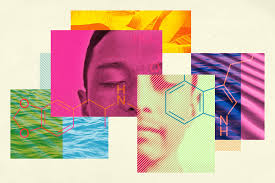Podcast: Play in new window | Download (Duration: 59:26 — 40.9MB)
Subscribe: Apple Podcasts | Spotify | Amazon Music
Shame, the good, the bad and the ugly! In this podcast, learn how to recognize the various forms of shame and how guilt can be an antidote to this pit in the stomach feeling. Sue Marriott, Dr. Ann Kelley and guest Dr. Stephen Finn engage in a wide-ranging discussion about the least favorite feeling in most people – the collapsed feeling of shame!
It is more complicated than you think. Shamelessness and debilitating shame are both toxic and yet there is a version of these feeling that is quite healthy. Listen as we discuss the contemporary research and the biology of this emotion and practical implications for your everyday life. Listen to the end to find out if you are a dandelion or an orchid.
Who is Steve Finn:
Stephen Finn is a psychologist in private practice in Austin, TX and a Clinical Associate Professor of Psychology at the University of Texas at Austin. He is known for developing Therapeutic Assessment, a brief psychological intervention that combines psychological testing and psychotherapy. He lectures around the world on Therapeutic Assessment and other topics, including—in recent years—shame.
If you like this kind of content you’ll enjoy Episode 23, Self-Compassion with Kristin Neff
Want more like this?
Check out our free YouTube video Modern Adult Attachment 101 to learn more – https://www.youtube.com/watch?v=PF7g4K8fDvo
0:00-15:00
Intro
Stephen Finn’s initial interest in shame
Defining shame, differentiating shame from guilt
Barrier experience, shame can become a central part of personality in some people
Guilt is a developmental achievement and is appropriate in certain circumstances. Doing something bad rather than being bad, this it’s not hopeless.
Some shame is good – healthy shame indicates capacity for empathy.
Shame is a necessary social adhesive and social conditioning required for living in groups.
Lack of guilt in psychopaths
Problem of having too much shame or getting caught up in shame.
Developing trait shame. If normal emotions have been shamed (particularly by parents to their developing children), this can occur. This can also result from emotional neglect; misconstruing being unloved as being un-loveable.
15:00-30:00
Problem of parents with cell phones fueling neglect at an early age.
Still face experiment and instilling shame through lack of expression – (see resources for link it’s very interesting)
Relationship between having a conscience and shame
Shaming and repairing is healthy, never shaming is not. Guilt is really healthy shame.
Physical effect of shame and biology.
In order to get over hidden shame, you need to expose it to safe people.
Shame can only be healed interpersonally.
Different cultures social constructions of shame.
Importance of overcoming hesitation or anxiety of punishment from sharing shame.
30:00-45:00
Experiences of sharing shame in group. Importance of sharing shame in group.
Complication of therapist feeling need to relate or there’s no need to feel shamed when its one on one.
Joining in sharing shame is very powerful tool.
Couples and understanding or dismissing shame. Connecting right brain to right brain.
Getting people to transition from shame to guilt
What does repair actually look like?
The journey from shame to guilt is recognizing its something you did, not something you are.
45:00-57:00
Idea of narcissism freeing others up from shame, especially in a relationship. Need to go from shame to guilt, not shamelessness.
Importance of “me too” in terms of diminishing shame.
Emphasis on shame in Japan and link to high rates of suicide.
Orchid and Dandelion children concept.
Stephen’s method of therapeutic assessment (www.therapeuticassessment.com)
Wrap up & outro
Resources:
- Therapeutic Assessment Institute How to reach Steve Finn and his expert team, who train this technique across the globe.
- In Our Clients Shoes Theory and Technique of Therapeutic Assessment book by Steve Finn
- Still Face experiment by Ed Tronick, video and blog explaining it, Gottman
- Understanding and Treating Chronic Shame, a Relational and Neurobiological Approach book by Patricia DeYoung
- And as if that’s not enough, many other resources have been collected for you on our Resources page!














